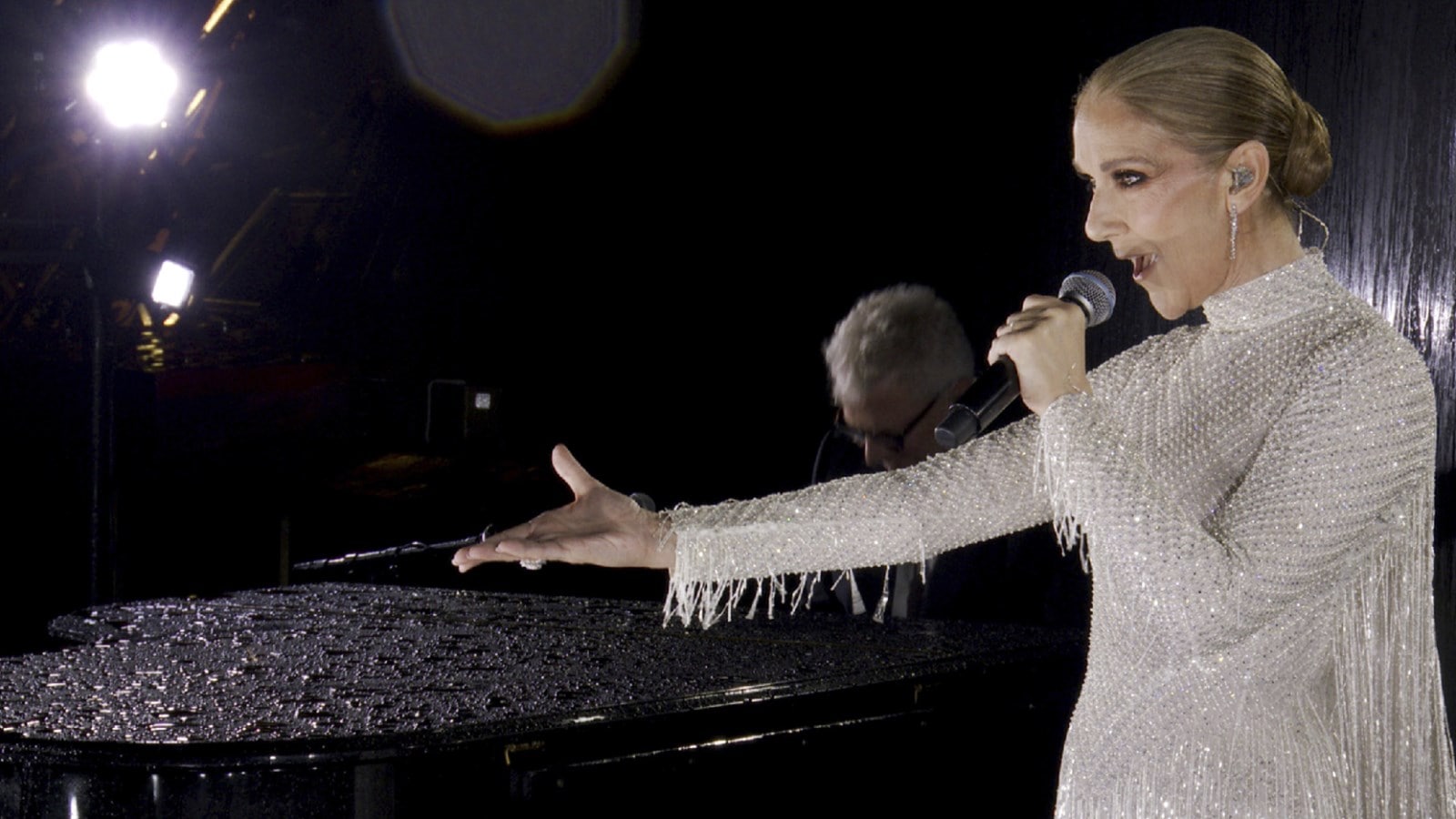In the blue where all is harmony, With my voice raised high to heaven, Just for you, I’ll sing a hymn to love.
With this stunning and poignant rendition of French singer Edith Piaf’s classic Hymne à l’Amour as the finale to the rain-soaked opening ceremony of the Paris Olympics, ballad queen Celine Dion prevailed.
The high-stakes performance was Dion’s first since she announced her diagnosis of Stiff Person Syndrome – a rare progressive neurological disorder that afflicted her over four years ago, and which took her away from singing publicly (her last performance was in Newark in March 2020).
The syndrome, as Dion explained in Irene Taylor’s recent, extremely moving documentary, I am Celine, constricts her vocal cords, besides causing violent spasms and excruciating pain in her body, not allowing her to manage even simple everyday tasks without meds and those recording sessions, the kind she used to nail without batting an eyelid. Triggered by sensitivity to noise, touch, excitement and stress, the syndrome took away her normal voice throw, besides an inability to hit those astonishing high notes. And since the debilitating diagnosis, Dion’s watched her art, one she toiled for and has been brilliant at, slip away from between her fingers. The disorder has not only threatened to take away the one thing she knows and lives for — her music — it’s already affected her voice gravely, leaving it scratchy and squawky, as one notices in the documentary.
But Dion, with her artiste’s strength of character, wasn’t going to let go without a wrestle with the enemy. “I’ll sing again, that’s for sure,” she said in an interview with CBC a month ago, the grit in the sentence not coming from her once powerful voice, now eroding slowly. The grit came from the relentless fight she’s been putting up against her body with medicines, therapy, and constant attempts at trying to manage to sing, one note at a time.
But even then, when her comeback was mentioned in June by the French Minister of Sports, it had not only felt unrealistic, it seemed like a bit of a whim. Mainly because on these occasions, failure is usually not an option.
On Sunday, Dion snatched it all back from fate. As she stood on the Eiffel Tower balcony, beneath the illuminated Olympic rings and next to the rain-soaked grand piano of her music director Scott Price, looking breathtaking in the glittering white Dior dress covered in thousands of pearls, the Canadian chanteuse was as much a sportsperson as the 6,800 of those watching her in the audience along with 3,00,000 people from the banks of Seine and millions worldwide. In the real-life litmus test, where she needed her body and mind to let her do what she does best, she sang Piaf’s soaring anthem, breathing life gently into its notes and then taking it away with the higher notes – ones we’d appreciated but also taken for granted for so long. This is where the theatricality of the moment came to the fore, harmonised with the voice that came full of vim and vigour, reaching the crescendo and then powerfully but gently making a safe touchdown with finesse.
With every syllable that Dion crooned, it didn’t only feel like a personal triumph, as she mustered all her physical and mental strength to make this happen, it was as much a battle cry for the athletes to find every ounce of everything in them to do their best.
Dion’s tribute to love was also a hat-tip to Piaf, who’d crooned the plaintive piece 75 years ago and composed it as a tribute to her 33-year-old boyfriend Marcel Cerdan, the French-Algerian boxer, who died in a plane crash while coming to see her. Composed in a house she shared with him and not far away from the Eiffel Tower, from where Dion sang the piece a three-quarters of a century later, it evoked a unique zeal for life in a moment mixed with emotions.
While Dion held back her tears during the performance, many who watched were shaken up with emotion, and wept. Dion had just avenged her destiny, letting hope float.
It isn’t often that the wrought iron lattice of the Eiffel Tower, with all its strength and solidity, witnesses another one of its kind. Whatever may happen from now on, Dion managed to win a battle that she fought with herself – the kind that’s often the hardest. The first gold medal then goes to Celine Dion.
suanshu.khurana@expressindia.com



